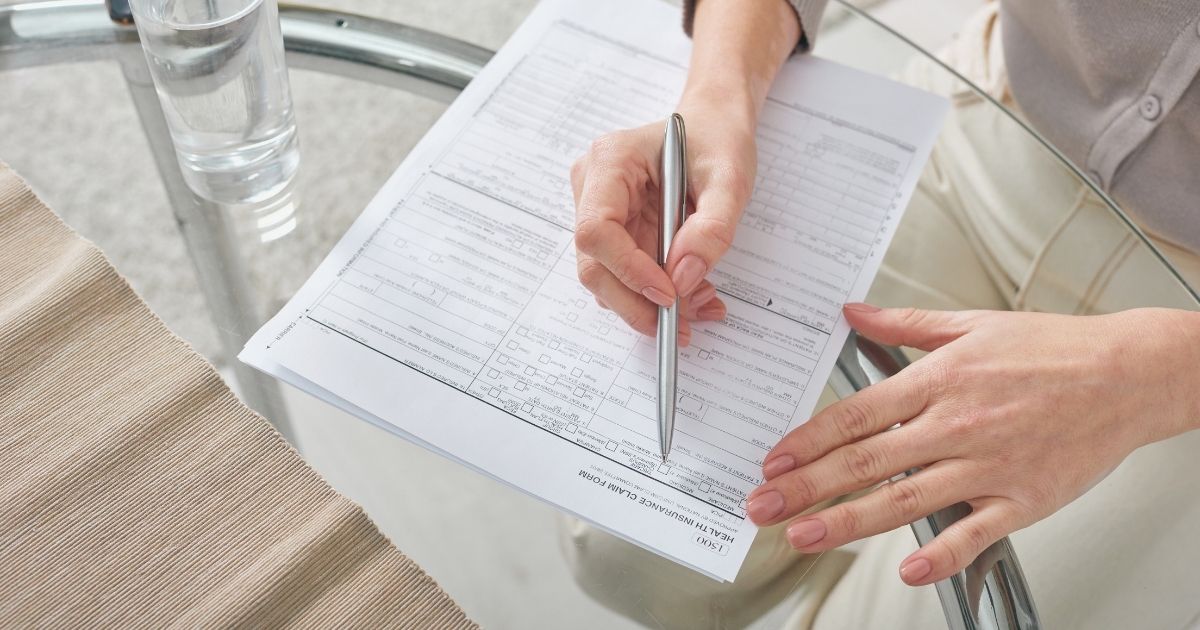Securing proper health insurance while working remotely in France is a critical consideration for digital nomads. France boasts one of the world’s most comprehensive healthcare systems, consistently ranked among the best globally—but navigating health insurance in France for foreigners requires understanding specific requirements and processes unique to this country.
The French approach to healthcare combines universal coverage with supplementary private options, creating a system that’s comprehensive yet sometimes complex for newcomers to understand. For digital nomads choosing France as their temporary base, understanding these healthcare structures ensures you maintain proper coverage while enjoying the country’s exceptional quality of life.
Whether you’re planning a short-term stay or considering a longer remote work arrangement in France, Nomada has prepared this essential guide to help you understand health insurance in France for foreigners, particularly tailored to the needs of location-independent professionals.
Understanding the French healthcare system

Before examining specific insurance options, it’s important to understand how healthcare operates in France, as this knowledge forms the foundation for making informed decisions about your coverage needs.
The French Social Security System (Sécurité Sociale)
France operates a universal healthcare system through its social security framework, providing comprehensive coverage to legal residents. The system is funded primarily through social contributions from salaries and general taxation. At its core is the Assurance Maladie (health insurance branch), which covers approximately 70-80% of most healthcare costs for those enrolled in the system.
The French approach differs from purely public or private systems found elsewhere. While the government oversees and regulates healthcare, a network of statutory health insurance funds manages day-to-day operations. For residents enrolled in the system, this results in relatively straightforward access to care with partial reimbursement for most medical expenses.
🌟 Pro tip: even digital nomads planning shorter stays should familiarize themselves with basic French medical terminology. Key phrases like “assurance maladie” (health insurance), “mutuelle” (complementary insurance), “médecin traitant” (primary care doctor), and “ordonnance” (prescription) will help you navigate the system more effectively.
Public vs. private healthcare access
The French healthcare system blends public and private elements in a unique way. Most doctors, specialists, and hospitals participate in the public system while operating as private practices or institutions. This hybrid approach means patients generally have freedom to choose their providers while still receiving coverage through the national system.
Public hospitals (hôpitaux publics) provide comprehensive care and typically cost less than private clinics (cliniques privées), though the latter often offer more comfortable amenities and shorter wait times for non-emergency procedures. For digital nomads, both options are accessible, with the primary difference being cost and, occasionally, appointment availability.
💡 Did you know? The World Health Organization ranked France’s healthcare system as the best in the world in their comprehensive analysis of global healthcare systems. While the ranking is from an older report, France consistently remains in the top tier of global healthcare assessments due to its combination of universal access, quality of care, and health outcomes.
Health insurance options for digital nomads in France

Digital nomads have several options for securing health insurance coverage while in France, depending on their nationality, intended length of stay, and specific circumstances.
1. European Health Insurance Card (EHIC/CEAM)
For digital nomads who are citizens of European Union countries, Iceland, Liechtenstein, Norway, or Switzerland, the European Health Insurance Card (EHIC) or its newer version, the European Health Insurance Card (CEAM), provides coverage for temporary stays in France. This card entitles holders to medically necessary healthcare under the same conditions and costs as people covered by the French system.
It’s important to note that the EHIC/CEAM is designed for temporary stays, not for those establishing residency in France. The card covers medically necessary care that cannot wait until the planned return to your home country. It does not cover private healthcare costs, non-urgent treatment, or medical repatriation.
2. The French universal healthcare system (PUMA)
For digital nomads planning to stay in France for more than three months and who establish legal residency, access to the Protection Universelle Maladie (PUMA) becomes possible. To qualify for PUMA, you generally need to be a legal resident of France with the intention to live there in a “stable and regular manner” for at least three consecutive months.
The application process involves submitting documentation to your local Caisse Primaire d’Assurance Maladie (CPAM) office, including proof of identity, residence, and your right to stay in France. While the system is designed to be universal, the application process can be administratively complex and time-consuming for foreigners, often taking several months to complete.
🌟 Pro tip: when applying for PUMA as a digital nomad, prepare comprehensive documentation of your financial stability and resources. While not technically self-employed in France, demonstrating that you have stable income from foreign sources can strengthen your application, as French authorities want to ensure you’re not seeking healthcare benefits while placing a burden on the social system.
3. Private health insurance for temporary stays
For most digital nomads staying in France for less than six months, private international health insurance represents the most practical solution. These plans can be tailored to your specific needs, often providing coverage not just in France but globally, which aligns well with the mobile lifestyle of digital nomads.
Key considerations when selecting private health insurance include:
- Coverage limits for both inpatient and outpatient care
- Whether direct billing is available with French medical providers
- Coverage for pre-existing conditions
- Evacuation and repatriation benefits
- Prescription medicine coverage
- Deductibles and co-payments
- Sports and adventure activity coverage
- Mental health services
While traveling throughout France, maintaining reliable connectivity is essential for managing health insurance claims and locating medical services. A dedicated eSIM from Holafly provides seamless internet access across France’s diverse regions, ensuring you can access insurance portals, contact emergency assistance, or find nearby medical providers whether you’re working from Paris, the Alps, or the coastal regions.
Navigating the French healthcare system as a foreigner

Once you’ve secured appropriate health insurance, understanding how to effectively use the French healthcare system becomes the next challenge for digital nomads.
Finding medical care in France
France has a relatively unrestricted healthcare system where patients can typically consult specialists directly without referrals. However, the “médecin traitant” (primary care physician) system encourages patients to first consult a general practitioner who coordinates care and referrals. Following this pathway generally results in higher reimbursement rates from the national system.
Finding English-speaking doctors is relatively straightforward in major cities like Paris, Lyon, and Marseille. Resources for locating these providers include:
- The SOS Médecins service (house calls and urgent care)
- The US Embassy’s medical resources list
- Expatriate forums and social media groups
- International medical centers in larger cities
- Private insurance provider networks
🌟 Pro tip: many French pharmacists speak English and can provide valuable healthcare advice for minor ailments. In France, pharmacies play a more significant healthcare role than in some other countries, with pharmacists able to recommend over-the-counter treatments for common conditions without a doctor’s visit.
Understanding healthcare costs and reimbursements

For those with access to the French public system, the standard practice involves paying for services upfront and then receiving reimbursement from the Assurance Maladie (typically 70-80% of the official rates). Many French residents also carry supplementary private insurance (mutuelle) to cover the remaining portion.
Digital nomads using private international insurance should verify whether their provider offers direct billing with French healthcare facilities or requires paying upfront and filing for reimbursement. Keep detailed records of all medical visits, including:
- Original itemized bills and receipts
- Doctor’s notes and prescriptions
- Diagnostic test results
- Referral letters if applicable
- Proof of payment
Prescription medications and pharmacies
France has an extensive network of pharmacies (identifiable by a green cross sign) with highly trained staff who can assist with both prescription and over-the-counter medications. For digital nomads requiring regular prescription medications, note that:
- Some medications may have different names or formulations in France
- Prescriptions from non-EU countries are not automatically valid
- For chronic conditions, bringing a doctor’s letter explaining your medication needs can be helpful
- Controlled substances have stricter regulations, even with prescriptions
If you require regular medications, consider consulting with a French doctor early in your stay to establish continuity of care and obtain locally valid prescriptions.
Final thoughts on health insurance in France for foreigners
Health insurance in France for foreigners presents digital nomads with multiple pathways to coverage, each with distinct advantages depending on your situation. The country’s commitment to universal healthcare creates a supportive environment, though navigating the administrative aspects requires patience and preparation.
For short-term stays, private international insurance or the EHIC (for eligible Europeans) offers the most straightforward solution. For those considering France as a longer-term base, investing time in understanding the PUMA system and potentially supplementing with complementary insurance provides comprehensive protection at relatively reasonable costs.
France’s exceptional healthcare quality makes it an attractive destination for health-conscious digital nomads. By understanding your insurance options and how to navigate the system, you can work remotely with confidence, knowing that high-quality medical care is accessible should you need it.
For information about other practical aspects of working remotely from France, explore our complete guide to the French digital nomad visa for insights on legal requirements and establishing yourself as a remote worker in France.
Embrace your French digital nomad journey with confidence and comprehensive health protection 👉
Frequently asked questions about health insurance in France for foreigners
While not strictly required for short visits, having travel health insurance is strongly recommended as medical costs without coverage can be substantial. EU citizens can use their EHIC card, but non-EU visitors should secure private insurance before arrival.
Standard GP consultations cost approximately €25-30, specialist visits range from €50-80, and hospital stays can cost €700-1,000 per day before any procedures. Emergency treatment will be provided regardless of insurance status, but you’ll be billed afterward.
Basic travel insurance is suitable only for very short stays. For digital nomads spending more than a few weeks in France, international health insurance designed for expatriates or long-term travelers provides more appropriate coverage for ongoing healthcare needs.
After your PUMA application is approved, you’ll receive your French social security number and eventually the Carte Vitale (health insurance card). The process typically involves submitting identity documents, proof of residence, and your right to stay in France to your local CPAM office, followed by a waiting period of several weeks to months.
The public system (Assurance Maladie) covers about 70-80% of most healthcare costs. A mutuelle is private complementary insurance that covers all or part of the remaining costs not reimbursed by the public system. While optional, many residents find a mutuelle valuable for comprehensive coverage.




